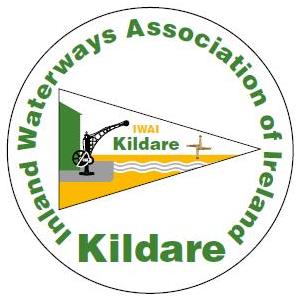Waterways Ireland & Minister Lawless TD North Kildare and Minister DoT on:
New Code of Practice for Safe Operation of Recreational Craft
Waterways Ireland wishes to inform all Masters of vessels that the Department of Transport in Ireland has published a new and revised Code of Practice for the Safe Operation of Recreational Craft. This is an important guidance document for all Masters, Owners and Users of recreational craft. The text of Department of Transport Marine Notice No. 54 of 2024 is as follows:
Marine Notice No. 54 of 2024 Notice to all Masters, Owners and Users of Pleasure and Recreational Craft.
The Department of Transport wishes to draw attention to the publication of a revised and updated edition of the Code of Practice for the Safe Operation of Recreational Craft. The Code of Practice contains legislative information, safety advice and best practice operational guidance for owners, masters and users of a range of recreational craft that operate in Irish coastal and inland waters.
The publication of the new Code of Practice follows a review of the previous Code and public/stakeholder consultations undertaken in 2022 and 2023. The importance of personal responsibility and safety awareness continues to be highlighted in the Code of Practice, with an added focus on the “Think and Prepare” message for anyone who decides to go out on the water. Each person needs to think about their proposed activity in advance, plan ahead, ensure that they have appropriate training and safety equipment and know what to do if things go wrong. The Code of Practice aims to assist in these areas.
Who is the Code for and What’s new?
The Code of Practice for the Safe Operation of Recreational Craft is intended for use by owners, operators and users of all recreational craft operating in Irish coastal and inland waters including:
- Sailing craft
- Boats used for recreational angling
- Personal watercraft (e.g. jet skis)
- Rowing boats
- Canoes, kayaks
- Stand-Up Paddleboards (when used for navigation)
- Motor boats, ski boats, powerboats, sports boats and dive boats
- Windsurfers
- Non-powered craft.
A feature of the new Code is a series of “Think and Prepare” Safety Checklists and templates that it is hoped will provoke thought and assist recreational craft users in their preparations before they go out on the water. These cover such issues as the identification and assessment of hazards and risks, fatigue, as well as templates for a Traffic Report message to let the Irish Coast Guard know about each proposed trip and an information template for shore-based contact persons.
A useful Checklist of Basic Requirements and Advice can be found on page 7 of the Code. In addition to providing updated information on the legislative requirements that apply to recreational craft, the Code of Practice also contains new content on such topics as Traffic Report messages to the Irish Coast Guard, foiling, surfing and kitesurfing safety, coastal rowing, cold water shock and hypothermia, electrical systems, radio communications and the online maritime radio licence registration system introduced in 2022.
How to Use the Code?
The Code of Practice contains a General Introduction with a number of Safety Checklists followed by two Parts and a series of Appendices.
Part A (Chapter 1) outlines the legislative requirements that apply to all recreational craft or specific types or size of craft. Owners and operators must comply with the requirements appropriate to their craft.
Part B (Chapters 2 to 11) contains recommended guidelines and best practice information on the safe operation of recreational craft. Chapters 2 to 9 provide guidance in relation to particular types of craft/activities. Chapters 10 and 11 provide safety guidance applicable to recreational craft generally and 11 Appendices cover such topics as radiocommunications, collision prevention, weather and sea states, lifejacket guidance, passage planning, buoyage and anchoring.
Owners and users of recreational craft should familiarise themselves with the General Introduction, Safety Checklists, Part A, the particular chapter in Part B appropriate to their type of vessel, together with Chapters 10, 11 and the Appendices.
Where to get the Code?
The Code of Practice is a free document and hardcopies can be obtained on request, in both English and Irish, from the Maritime Safety Policy Division of the Department at email marineleisuresafety@transport.gov.ie
The Code is also available to view or download from www.gov.ie, directly at the following link https://www.gov.ie/en/publication/66ff7e-safe-operation-of-recreational-craft/ and on www.safetyonthewater.ie.
For the convenience of those who may only be interested in a particular type of recreational craft, individual chapters of the Code are also available to view or download.
All recreational craft users are encouraged to familiarise themselves with the Code of Practice and to follow the safety advice and guidance contained in the Code. Please spread the word regarding the Code and its availability.
Waterways Ireland thanks its customers for their co-operation in relation to this matter.
P Harkin
Inspector of Navigation
Waterways Ireland
23 September 2024
“Waterways Ireland, managing and promoting the inland waterways for the benefit of all…”
………………………………………………………………………………………………………
Minister Lawless launches new Code of Practice for the Safe Operation of Recreational Craft
Department of Transport – 17 September 2024
All recreational craft users encouraged to think and prepare before going on the water
Minister of State at the Department of Transport, James Lawless, has today (17 September 2024) launched a revised and updated edition of the Code of Practice for the Safe Operation of Recreational Craft.
The publication of the new Code of Practice follows an extensive review of the existing Code by the Department of Transport, which included public and stakeholder consultations in 2022 and 2023. The Code of Practice is a public service initiative containing safety information, advice and best practice operational guidance for owners, operators and users of a range of recreational craft operating in Irish coastal and inland waters. These include sailing craft, jet skis, rowing boats, kayaks, canoes, motor boats, recreational angling boats and stand-up paddleboards.
Launching the new Code of Practice, Minister Lawless said:
“Safety is at the heart of our transport policies and services. The Code of Practice has been a helpful and popular educational resource for many years for members of the public and for training providers.
“This updated edition includes new and expanded content in response to suggestions made by those who participated in the review and consultation processes. I am sure it will become a trusted and essential guide for all those who enjoy leisure time on our waters. I thank all those individuals and organisations who took the time to contribute to the review process.”
A new feature of the Code of Practice is a set of “Think and Prepare” Safety Checklists, covering issues such as hazards and risks, fatigue and the importance of letting the Coast Guard know about each proposed trip. There is also a template for shore-based contact persons. These checklists encourage recreational craft users to think and prepare before going on the water.
Minister Lawless commented: “Much of this is common sense, but by taking simple basic steps you can improve your situation and be better prepared in the event of changing circumstances.”
In addition to providing updated information on the legislation that applies to recreational craft, the Code of Practice contains new and revised content on topics such as Traffic Report messages to the Irish Coast Guard, foiling, surfing and kitesurfing safety, coastal rowing, cold water shock, hypothermia, and radio communications.
The message that underlines the Code of Practice is the importance of personal responsibility and safety awareness for all those who take to the water. The continued growth in marine leisure activities brings with it a range of safety implications for regulators and recreational craft users alike. After a three-year period between 2020 and 2022 of no fatalities on the water, the ‘2023 Marine Casualty Investigation Board Report of Incidents and Investigations’ records that five fatalities involving recreational craft occurred during 2023, which is a cause for concern and reinforces the ongoing need for vigilance and safety awareness.
Minister Lawless urged all recreational craft users to familiarise themselves with the Code of Practice, to think about safety and to plan each journey. The Minister stressed the importance of checking the weather forecast prior to departure, always wearing a personal flotation device or life jacket, and telling someone shore-based about the plans for the trip, including letting the Coast Guard know by logging a Traffic Report message so as to help the rescue authorities in the event of a need for search and rescue. The Minister also stressed the need to have a dependable means of communication to call for assistance, such as a VHF radio, an Emergency Position Indicating Radio Beacon or a Personal Locator Beacon.
The Code of Practice for the Safe Operation of Recreational Craft is available to view or download, in both English and Irish, on the Department of Transport website and at www.gov.ie. Copies free of charge can also be requested from the Maritime Safety Policy Division of the Department of Transport at marineleisuresafety@transport.gov.ie.

